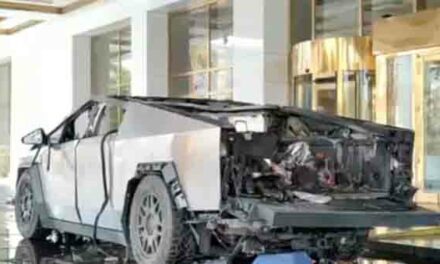We support our Publishers and Content Creators. You can view this story on their website by CLICKING HERE.
While automation makes our lives simpler, some tasks are more satisfying when we do them ourselves.
One of the great transformations of the past generation is the increasing automation of everyday life.
A partial list of the kinds of things that are completely or significantly automated compared to the past includes automatic bill payment, robot vacuums and lawnmowers, smart thermostats, scheduled deliveries, voice reminders, email filters, GPS maps, fitness tracking, smart appliances, and social media feeds.
These things are not inherently bad. Generally speaking, they have made life more convenient and saved us time, which I support. I would even recommend that certain types of people look into automating their lives even more—it can be a huge blessing, especially in large families like my own.
So why discuss the downsides of automation?
We need to consider the costs associated with the choices we make. Nothing comes without tradeoffs. The more we’re aware of downsides, the better we can design future systems to account for them or build practices into our lives that act as checks and balances.
If you’re the type of person who likes to automate everything—great! This list might still be a helpful way for you to consider potential weak spots in your personal growth and come up with a plan to counteract them—even as you enjoy the many benefits of automation.
6 Potential Downsides of an Automated Life
1 Losing Touch With What’s Really Happening
When something becomes automated, you take your eyes off it. That’s the whole point. It can save time, but one drawback may be that you lose touch with whatever feedback you had been getting from doing the work manually. My wife and I have our credit card bill to automatically pay off each month which makes life so much simpler, but it also means we occasionally forget to cancel a subscription for months at a time.
2. Erosion of Valuable Skills
There was a time when you had to understand your taxes in order to do them correctly. But now, with the advent of helpful tax software, you can be completely oblivious like I am and still get the numbers right. Or at least hope so. One of the downsides to such automation is that I’m trusting their algorithm. The cost of convenience is that my fundamental knowledge of how our tax system works has eroded.
3. Convenience Can Lower Satisfaction
I’m thinking about robot vacuums and robot lawnmowers. In both cases, the appeal is obvious. Who wouldn’t want that one chore automatically ticked off your task list each day or week? However, chores add a sense of purpose to our lives. For example, I take pride in how our lawn looks after mowing and find satisfaction in the work it takes to push the mower. It’s great exercise and very satisfying as a job well done.
4. More Dependencies Mean Less Resiliency
Automated systems are complex—there’s no way around that. My job involves building automated workflows for various back-end functions of a university. When it works, people think it’s like magic. But then, for no discernible reason, systems can break down. Because everything is interconnected, one small change over here could have a surprising impact over there. In some ways, work is more efficient, but we lost some of the resilience that once existed while passing manilla envelopes around the office.
5. Technology Can Be Hard to Repair
I’ve never really been into cars, but I think I may have if I had been born one generation earlier. I can appreciate the appeal. By the time I was of driving age, many cars were filled with complicated electrical systems that the average person couldn’t work on. That means having to pay for costly repairs instead of fixing it yourself.
6. Less Natural Movement
Automating can mean less manual or mental effort on the user’s part. While some of that work was repetitive and not exactly fun, it got us up out of our chairs or got our brains firing on a problem. Life can seem more passive when automated. When automation becomes prevalent we can become overweight or unhealthy and dull of mind. We need to use our bodies and engage our minds to stay fit on all levels.
I’m not anti-tech or anti-change. After all, I work in IT, and my main hobby is writing online. The truth is that we should all be living wisely—with our eyes wide open to the tradeoffs associated with the choices before us today.

 Conservative
Conservative  Search
Search Trending
Trending Current News
Current News 





